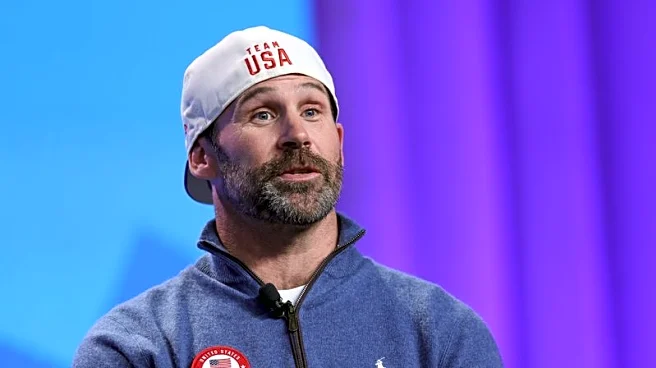What's Happening?
Johnson & Johnson has come under scrutiny for its marketing practices surrounding Invega Sustenna, an antipsychotic drug. The company marketed the drug as a 'stay-out-of-jail shot,' claiming it could prevent incarceration in patients with schizophrenia. However, investigations revealed that many subjects in studies supporting this claim were not suffering from schizophrenia but from substance-induced psychosis, particularly due to methamphetamine use. This misclassification has led to ethical concerns, as the drug was administered to individuals like Peyton Moyer, who was misdiagnosed and subsequently treated with Invega Sustenna, resulting in adverse effects and legal consequences. The FDA's approval of the drug's marketing claims has also been criticized, highlighting issues of regulatory capture and the influence of pharmaceutical funding on drug approvals.
Why It's Important?
The case of Invega Sustenna underscores significant ethical and regulatory challenges in the pharmaceutical industry. The misclassification of drug-induced psychosis as schizophrenia not only misleads treatment but also impacts the legal and social outcomes for patients. This situation raises questions about the integrity of clinical trials and the influence of pharmaceutical companies on regulatory bodies like the FDA. The financial ties between drug manufacturers and regulatory agencies can lead to conflicts of interest, potentially compromising patient safety and public trust in medical treatments. The broader implications include the need for stricter oversight and transparency in drug approval processes to ensure that patient welfare is prioritized over corporate profits.
What's Next?
There is a call for reforms in the pharmaceutical industry and regulatory practices. Recommendations include ensuring diagnostic integrity in clinical trials, enforcing transparency in trial data, and revising marketing claims that are not independently verified. There is also a push for stricter enforcement of mandatory reporting laws and informed consent, especially for vulnerable populations like minors. These steps aim to prevent similar ethical breaches and protect patients from being misdiagnosed and mistreated. The case also highlights the need for ongoing advocacy and accountability to address systemic issues in the healthcare system.
Beyond the Headlines
The Invega Sustenna case reveals deeper issues of how pharmaceutical marketing can influence public perception and policy. The use of advocacy groups and media to promote drug benefits without adequate scrutiny can lead to widespread acceptance of misleading claims. This situation reflects a broader cultural challenge where marketing narratives can overshadow scientific evidence, affecting both healthcare practices and patient outcomes. Addressing these issues requires a cultural shift towards valuing scientific integrity and patient-centered care over commercial interests.











